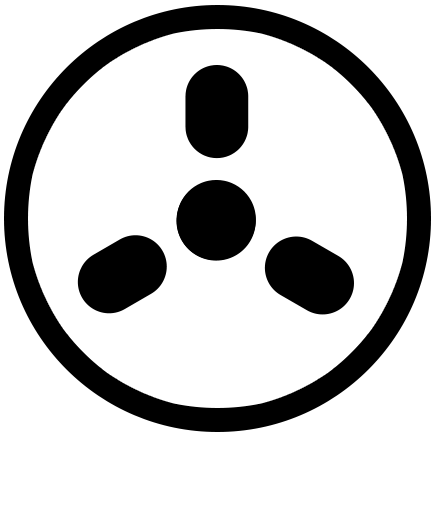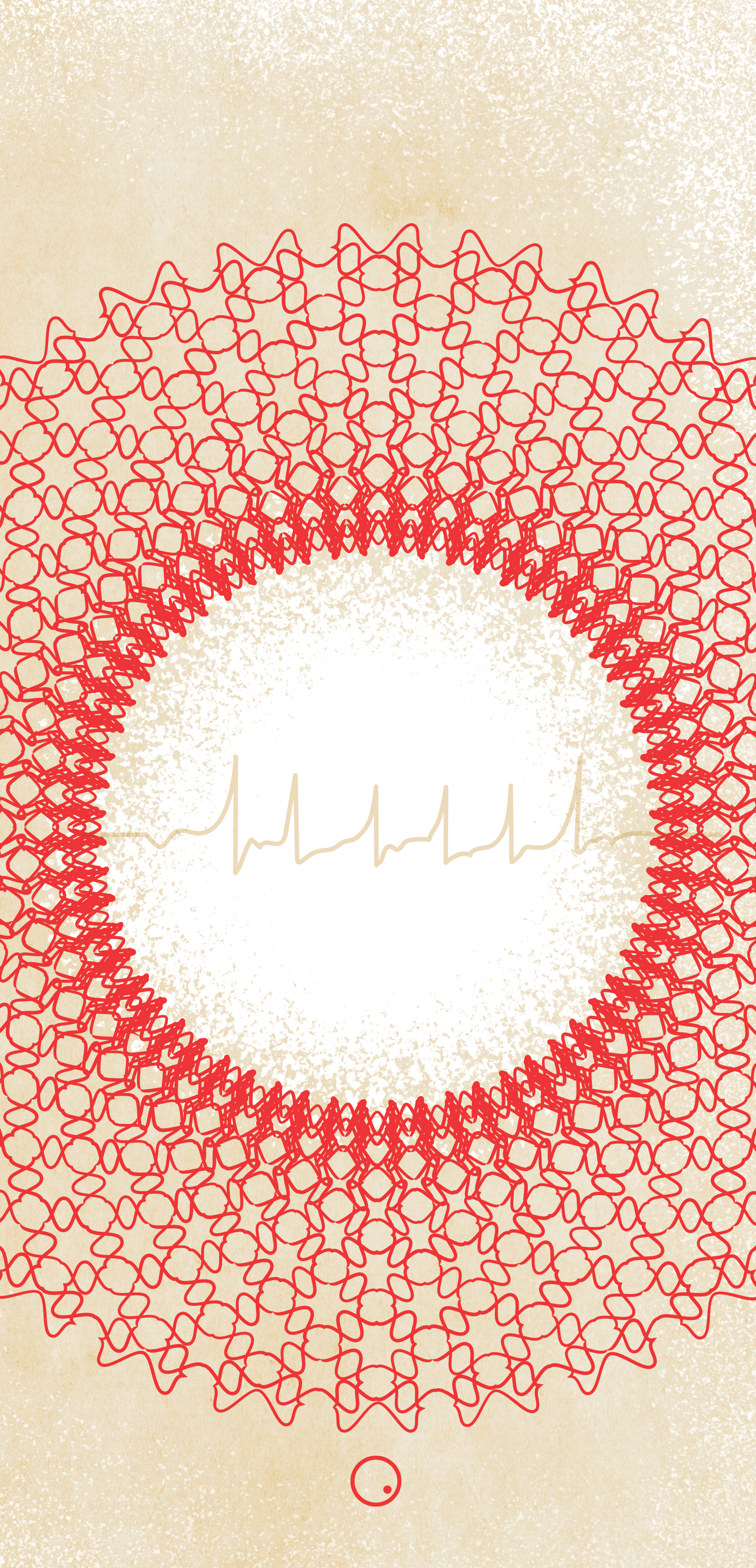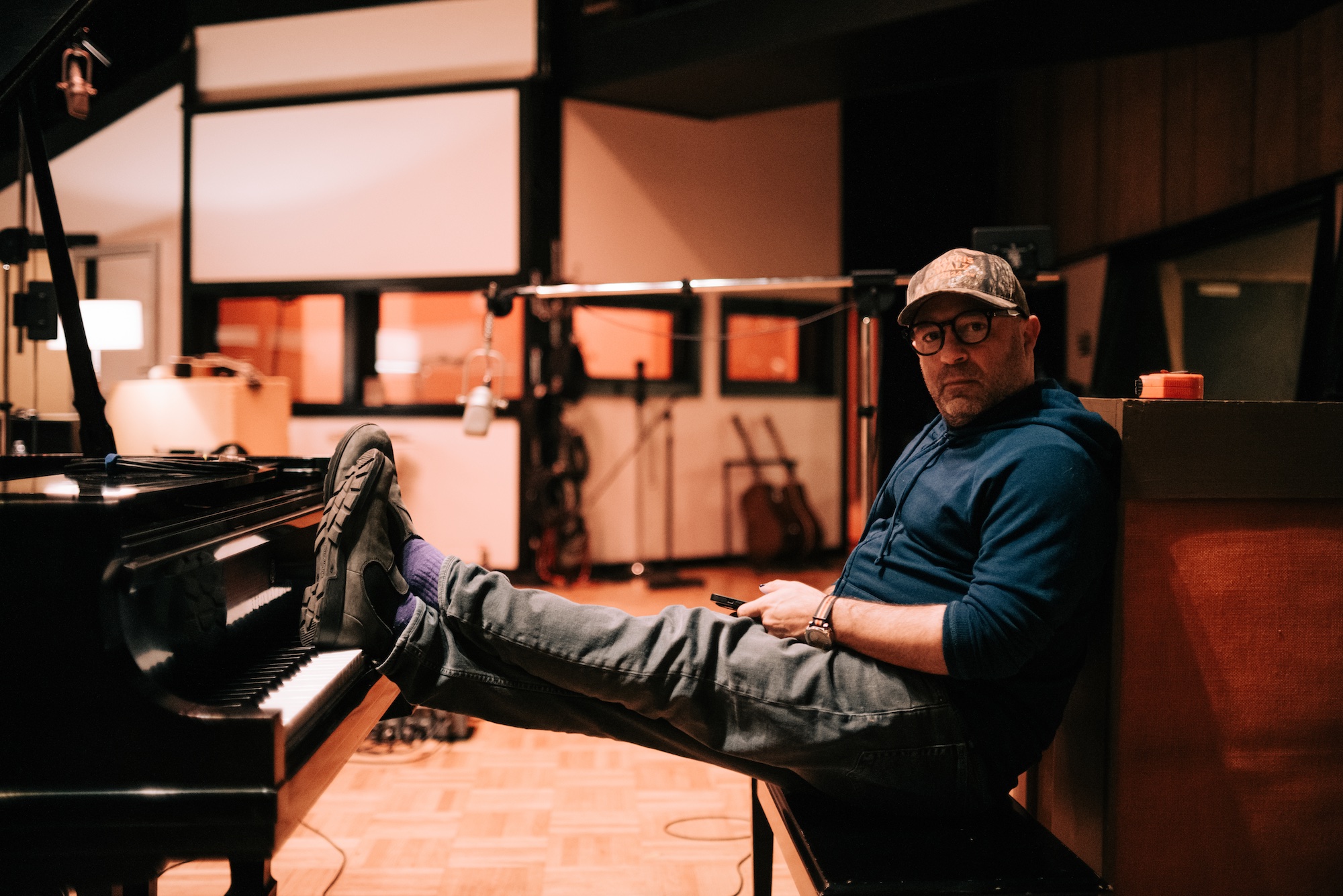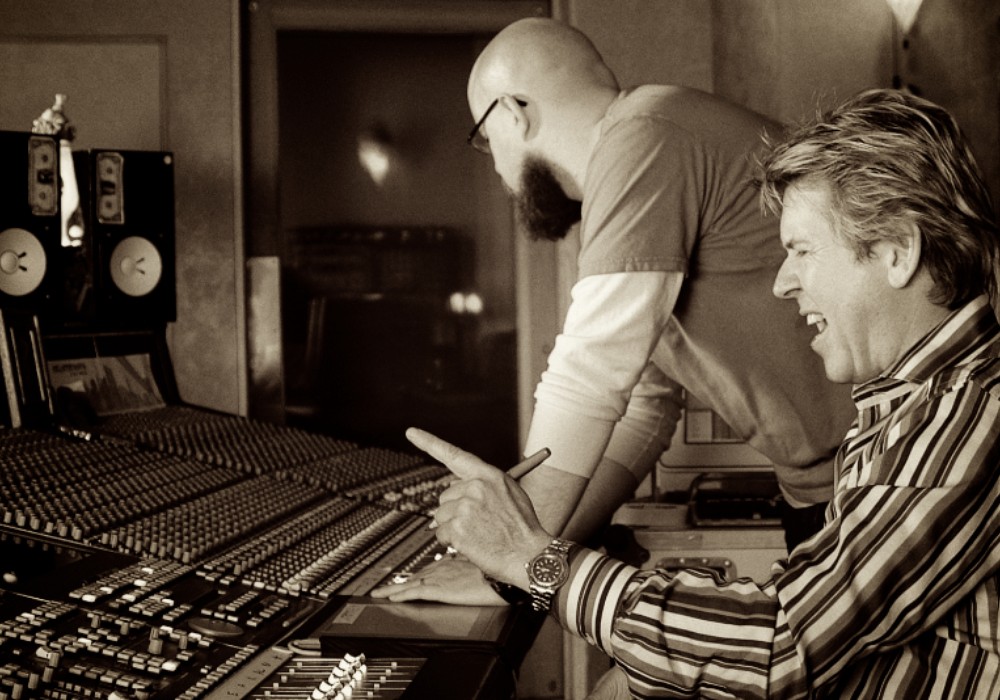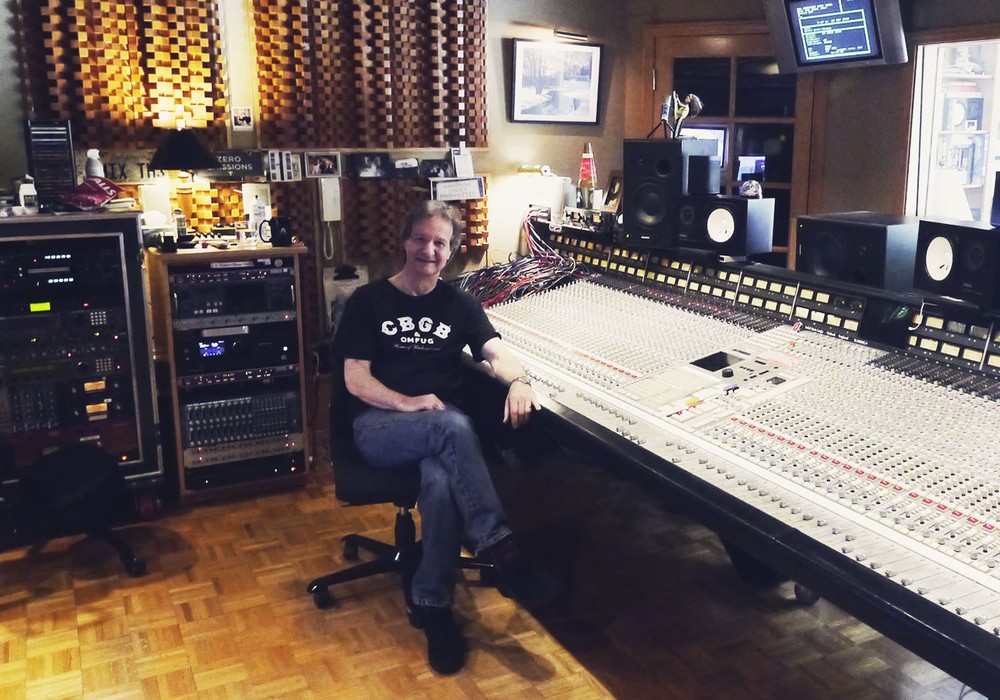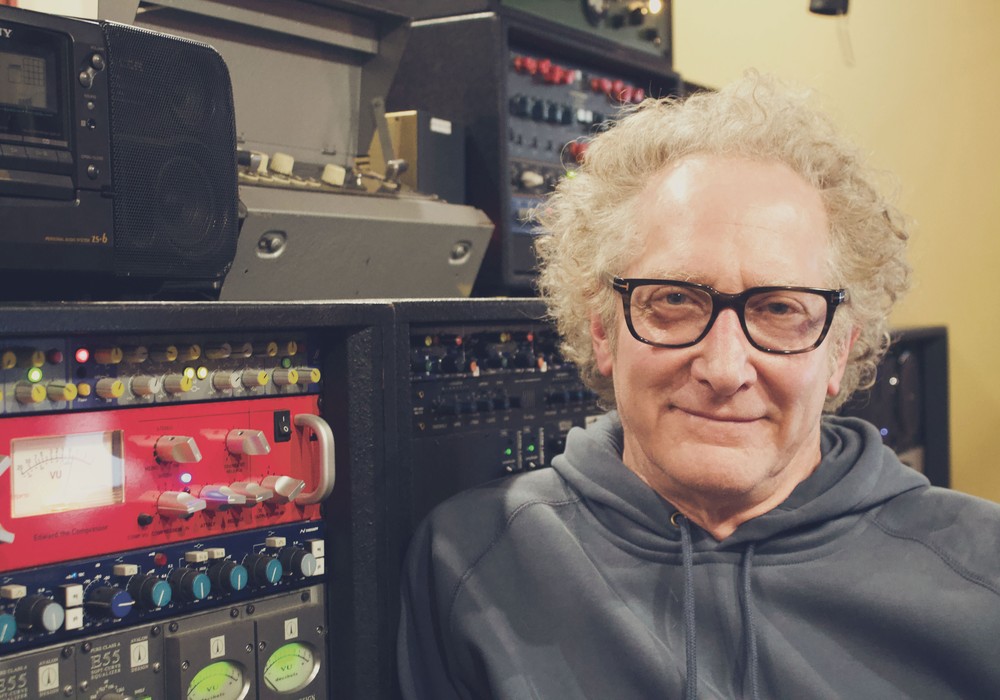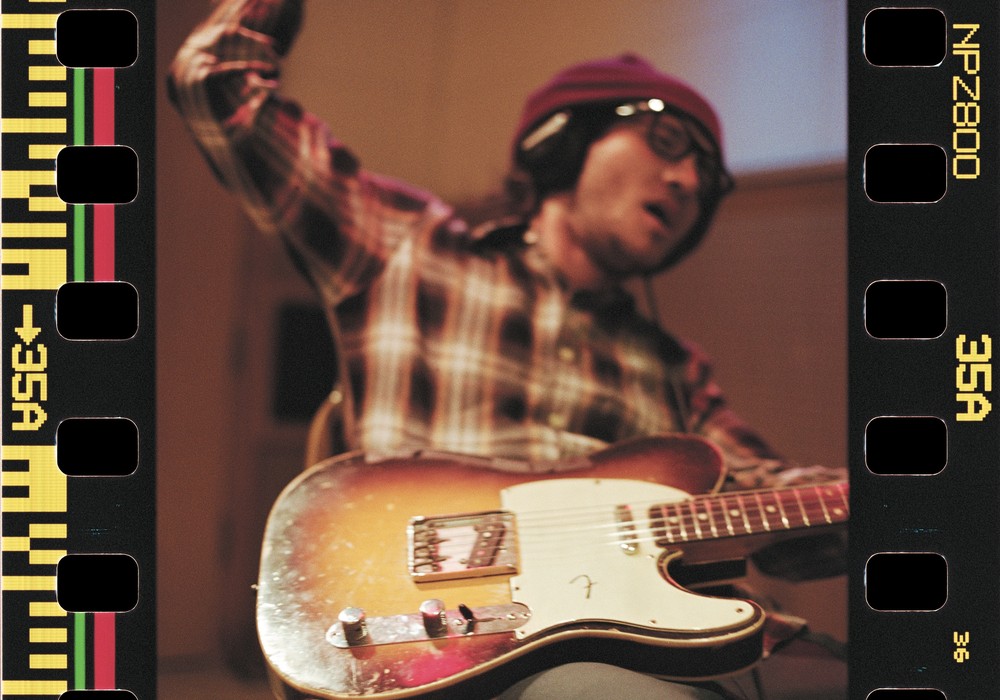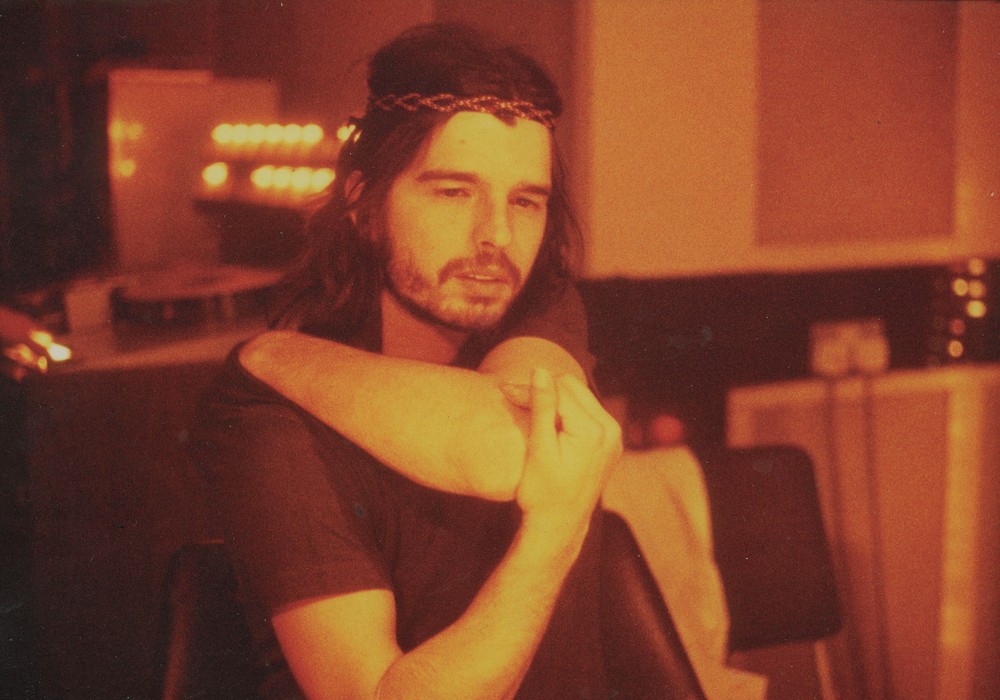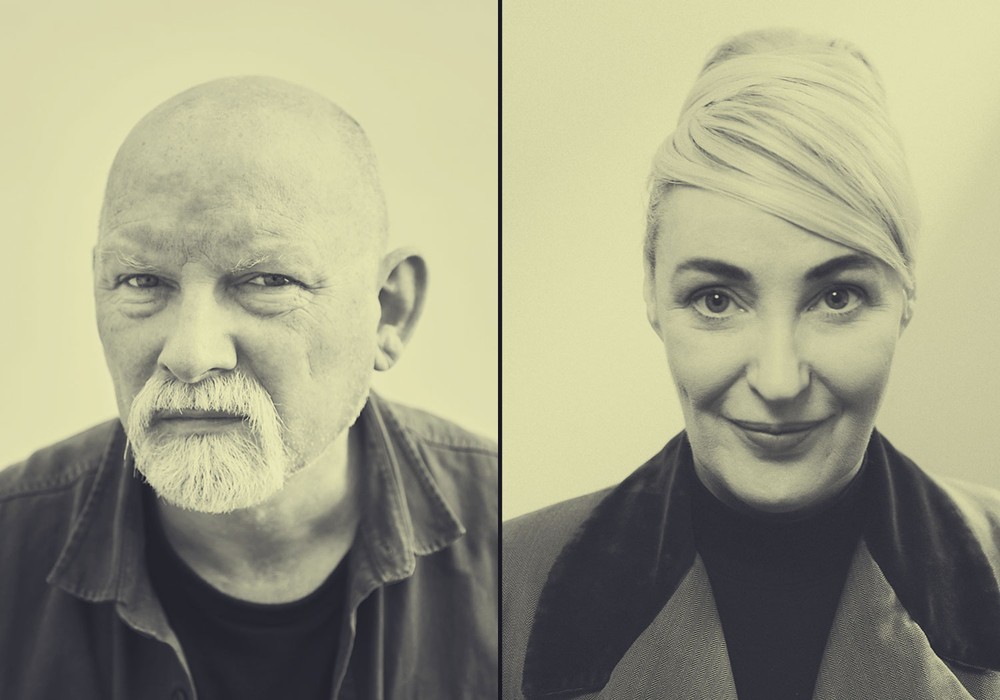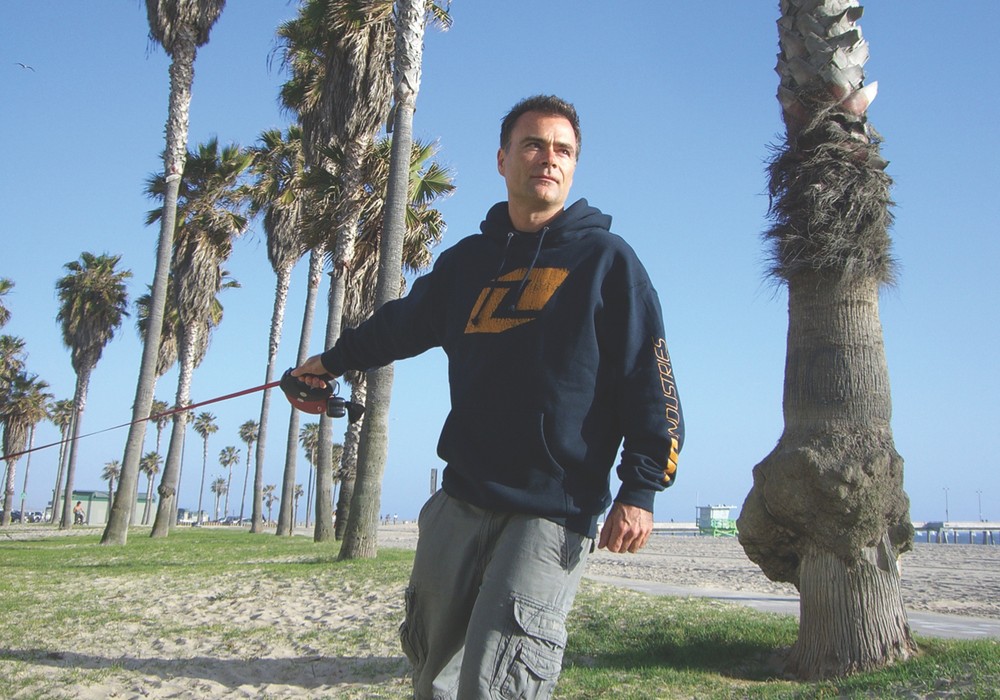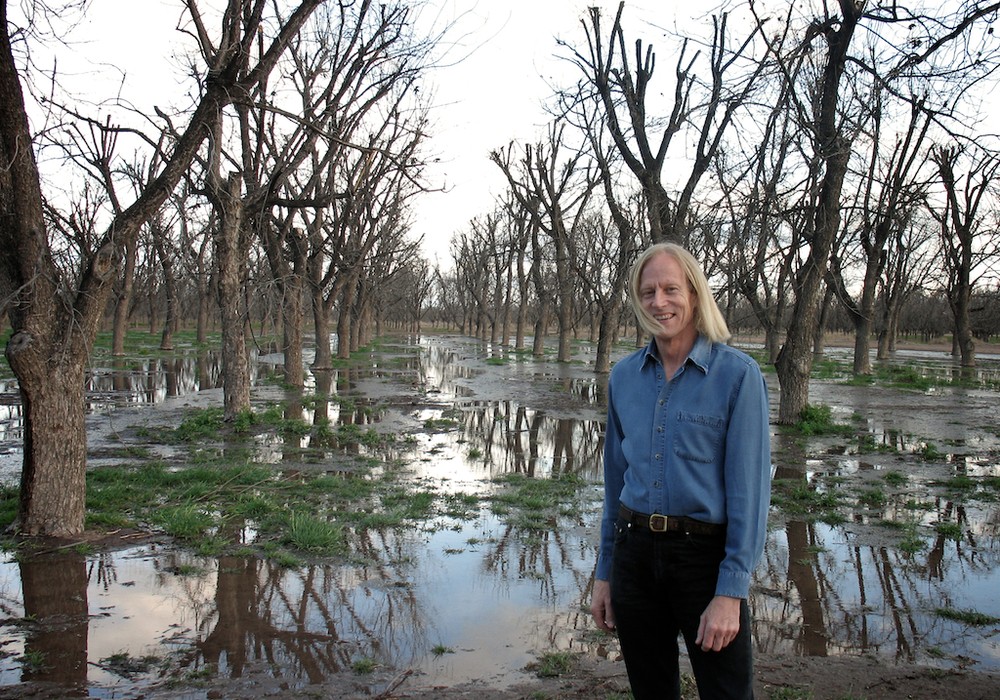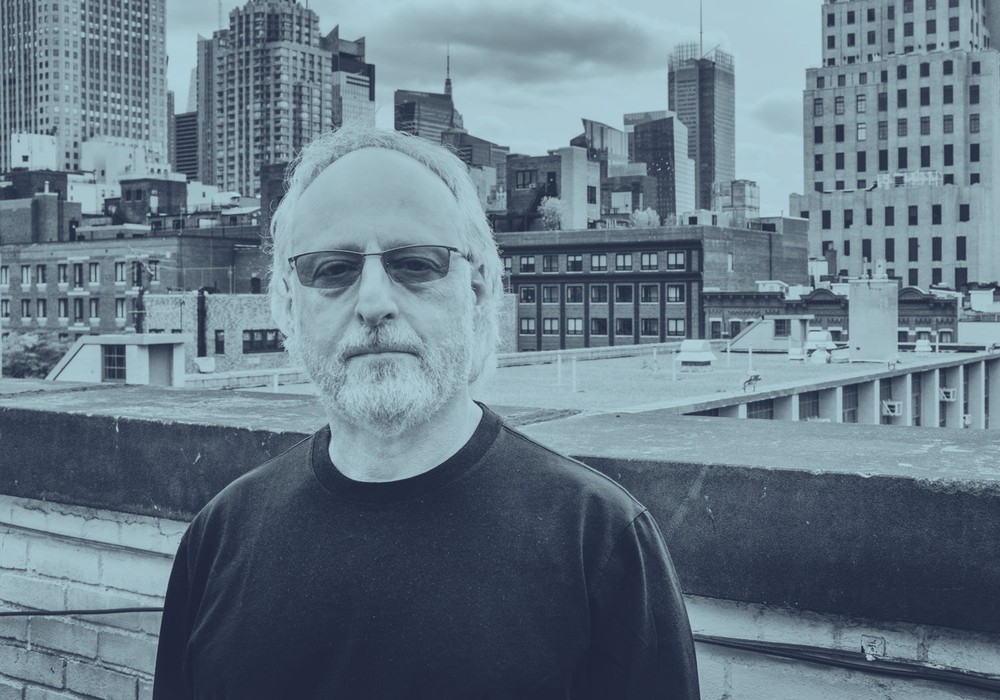In 2017, one of my best friends, Craig Alvin [Tape Op #137], kept texting me about a record he was engineering. He was saying how amazing the process was, and how awesome the results were. The album turned out to be Kacey Musgraves' Golden Hour, which went on to be a platinum selling, award-winning album that even her own record label had never expected. Daniel Tashian, with his longtime collaborator, Ian Fitchuk, co-produced, co-wrote, and played on Golden Hour, as well as the follow-ups (that Craig also worked on), Star-Crossed and Deeper Well. Outside of this, Daniel has produced amazing records for Lily & Madeleine, Sarah Jarosz [Tape Op #140], Rainbow Kitten Surprise, and even co-wrote and produced an EP (Blue Umbrella) with Burt Bacharach. Even more recently, Daniel co-produced (alongside T Bone Burnett! [Tape Op #67]) the new Ringo Starr album, Look Up. Now that's fun.
Did you grow up in Nashville?
I did.
Your father, Barry Tashian, had a long career in music.
Yeah, he did. He has Alzheimer's now. He's in memory care. He recognizes me still, but he's not unhappy. He's just got Alzheimer's.
Yeah. My dad had Parkinson's, and it was similar. It's rough. I was a big fan of The Remains. I think I saw you at the Las Vegas Grind show they played in Vegas in 2002?
Probably.
That was a fantastic reunion show.
Yeah. I was always amazed. I saw them play maybe three or four times – and it was not during the '60s, obviously – but I was always like, "Wow, that's an unusual sound; the combination of all of them together." There were some good musicians in the band. I think when bands are unappreciated, or cult bands, they can see what it takes to become this dominating force and they might think, "Well, I never intended to do it that way." It's not a pact with the devil, but it is still kind of a pact. They have to agree: "I'm willing to…" Some people are not in it for that. Look at Syd Barrett. There are examples all over the place of people who are brilliant, and they just don't want to sign up for the whole package.
Do they toe the line of what people are telling them to do, in order to be famous?
And there are introverts and extroverts. I think my dad's an introvert, really. Extroverts get energy from the crowd and introverts are depleted by it. They have to take a lot of time to repair themselves after an event. Some of the most interesting artists are probably introverts – like Kurt Cobain.
How do you see your own career? You started off with songwriting in your teens, then signed as a solo artist, and now you're known as a writer and producer. Do you ever feel you should have been more known as an artist?
I continue to be an artist in different ways, and I have that side of myself. It is fun to get up and play and sing. If some stratospheric success had happened for me as an artist we might be having a different conversation, but for me it was about finding a way to still have my day be occupied with music. I remember one tour I went on with The Silver Seas. I was opening for Graham Parker, and I was playing solo. I told the promoter, "No bad hotels." This was when our daughter, Tigerlily, was just born. I came home after a three-week tour and my wife [Lillie Fish] asked, "Where's the money?" I said, "It should be here any day." It all went to the hotels. I realized I couldn't go away as a young dad with a young family for three weeks and not come back with any money.
Did you start off more as a writer and co-writer when you were young?
It was a big relief to me when I figured out about writing songs. I wanted to be a drummer because I thought that looked like a good life to have. I loved Jeff Porcaro and Toto, I loved [Michael Jackson's] Thriller with J.R. Robinson. Then, in sixth grade, this kid arrived from South Africa, Nick Buda, and he was extraordinary. He was so much better than me. I thought, "It's going to be too hard to be a session drummer. I'll be a songwriter." So, I started making up my own songs.
You made your first solo record [Sweetie] in 1996, with T Bone Burnett producing?
I did. What was cool about that was that I feel I also got a "producer class" out of it. He would tell me a lot about the way he'd do things. Like, "Sometimes I have to leave artists alone and let them figure it out." Or he'd say, "Oh, you don't like singing with headphones? I don't either. Let's put some monitors on for you." All these different little ways of shoring up people's insecurities is what it really is about, in a lot of situations.
That would be a masterclass!
I've just had a full circle moment with him that's been really cool. We worked [as co-producers] on a new Ringo Starr album [Look Up] together. We started talking on the phone a little bit, and then he said, "I'm thinking about making a record for Ringo. Would you be interested in helping me?" I would go over there, and we would mess around. We wrote a couple of songs, and he'd say, "Ringo digs this. Let's write another one." Then we'd say, "Well, we better record them." We'd go in the studio, he would send them to Ringo, and he'd put on his drums and vocals. Suddenly, we had a record. It has been full circle because I'm back with my original mentor in this whole record production world. And man, he is at the height of his powers right now. He is writing killer songs and playing great guitar. He's so great. I love him so much. T Bone's been a blessing my whole life, from the very beginning. I'm so lucky that I wound up with him as opposed to some other people that were around at the time. It just would have been different.
T Bone has some specific ways of working. Do you feel you've learned to create your own ways based on everyone you've worked with?
Yeah. The most important thing is I've got to know where the ship is supposed to be pointed towards. Or at least where we're not wanting to go. Now that I say that, I don't really know. In a lot of ways, mine is a story of wild luck and miraculous, unexpected things happening, saving me from some other destiny. Divine intervention, in a way. I've had several jobs in my life. I've been a nanny. I've worked in every bookstore in Nashville – I figured out that there was a lot of downtime, and I could write lyrics. And what better place? It's like being in a library!
Right?
But production is a service job, and it's a job in service of the artist. T Bone knows a lot more than I do – he's got so many more years of experience. But I think it's when you have someone's best interest in your heart, you want to see them shining and see them looking and sounding great. If that's your impulse, you can't go wrong.
Someone once told me, "A record producer's job is to deliver hit songs for the record label." I looked at them and said, "I don't think that's always the case.” Sometimes our job is to protect the artist from the label. Or from themselves. How could we define delivering a hit, and how do we get there?
I think that's exactly right. That's a strange way to look at it. That's an old-fashioned definition of a record producer. Back in the day, Columbia Records would hire a staff producer, they would have these artists dropped on their doorstep, and they'd have to make it sound like a hit.
When you take on a job, like say Lily & Madeleine's Canterbury Girls, did you do a lot of research into what they'd previously done, make notes, and work out ideas before you’d meet up?
For better or worse, I don't. I never seem to dive deep into people's catalog. If I know a song that I've heard by an artist, that's one thing. But I don't do research because, more often than not, an artist is attempting, and should be attempting, a new look or a new direction because they want to keep evolving. If I go and listen to their old music, all I'm going to do is hear what they are trying to move forward from. And it intimidates me, because sometimes I'll listen to people's work and I'll think, "I could never do that." Maybe they did their record with John Leventhal [Tape Op #144], and I'll think, "I can't do this." I'll start to feel like it's not in my wheelhouse. So, I don't listen.
Do you have meetings or Zoom calls to talk about direction when you're taking on someone's new album?
If they want to.
Or is it sitting down and co-writing, producing, or demoing?
For me, it usually comes out of that. If we stumble on a vibe, they might think, "Yeah, I like how I sound in that context."
Right. Sarah Jarosz's record you produced [Polaroid Lovers] came out a year ago. It feels different than records she'd done with Gary Paczosa [#108] or John Leventhal previously.
I love John.
Of course! But was that direction coming from her, or more from sitting down and…
Definitely coming from the artist wanting to do something with me. I'm very open to suggestions. "What do you want to do? Let's try it."
A lot of your work has been co-writing plus producing. Do you start as writers?
I like to start it that way, because that way we can start to develop some themes so I can sense their worldview, and what things they're drilling down into at that point. I can get a sense from that, and it can grow outward. Maybe we'll pull in songs from here and there and different writers, or maybe we build this nucleus of sound thematically. Sometimes, if I don't write, it's more a management job where I've got to put the team of musicians together, get the studio scheduled, and choose the list of songs. Everybody has to agree – if it's a new artist, there are a lot of different people weighing in with their opinion about what it should be. I like project-managing a recording and letting the artist lead the way, only weighing in if it seems to be going around in circles.
Is picking the team a big part?
I think so.
I see some of the same people pop up on records you work on.
Yeah. We've got to pick the right drummer, because that sets the tone of the sound of the record. A drummer that plays in a musical and song-oriented way, and is really open. That's a good thing. It's casting. I know how to cast, and T Bone's really good at that too.
Certainly! How do you pick your engineering staff and studios?
I do the studio one by proximity to my house.
[laughter] That's pretty brilliant.
I pick the engineers by the ones that are kind, thoughtful, efficient, move quickly, and are willing to try my ideas. I had one engineer where I asked, "Should we run that vocal through the [Roland] Space Echo, the [Thermionic Culture] Culture Vulture, or something like that?" The guy replied, "Nah. I don't think so." So, that's not it.
Hearing "no" in the studio is bad.
I don't want an engineer to disagree with me unless I'm trying to do something really stupid. Like if I said, "We should record this to digital tape." Then they can say, "No, we don't need to do that." I want them to agree with me and then help me.
How much guidance do you give an engineer you're working with?
Well, good engineers have their own opinions and their own techniques they want to try, and I like to have a positive atmosphere where people feel free to be creative and do what they want to do. I don't think I would say anything to an engineer about how to approach anything. One thing I will do is if we've recorded something and I want to send it out and process tracks, I like to do that. Send it through a stomp box or send the piano through a wild EQ setting and bring it back in. It's all experimental, and we've still got the original if it comes back and it sounds terrible. I do notice that artists want recordings to sound interesting right away. It already should have a sonic identity, and signature, and be in the world and the landscape that it's meant to be in already. And later the mix is another layer of that.
How hands-on are you with engineering?
I am engineering all the time. As you can see, I'm in my studio here. I've even got a tape machine. I'm fascinated with engineering and mixing, but I'm not great at any of it! However, it's endlessly fascinating to me, and there's always more to learn. What I love about it is like painting; you can hear yourself improving. I love self-improvement and the journey of getting better at something. Listen to a mix from when you were young; everything fights with everything else because you don't know how to scoop anything out or clear any of the EQ. Everything's a mess. We all started with tape machines, so it didn't really matter. It was forgiving; it seemed okay. But in digital recording, the whole frequency spectrum is all there, so everything fights with everything else. When you learn to give sounds their own space, you're like, "Wow, I'm getting somewhere!" It feels so good.
Do you record a lot at your space?
I do. I do demos, or I work on things with my kids. I'm always tinkering with the flow. I've been here for 16 years, and I've finally got it now where everything is plugged in. Whatever I grab, or wherever I go to play something, it's already in. It's already on.
If you're in the middle of producing elsewhere, do you come home and work on overdubs there?
I do some of that. A more likely scenario is that we will have started something here in the co-writing and put a bit of a structure together, and then we'll take that to a studio and either overdub on it or we'll use little bits of it and replace others.
That makes sense. With the records you and Ian Fitchuk have co-produced and he's drumming, some of that sounds like a drum machine. I hear it on Kacey's and Lily & Madeleine's records. That tight, controlled sound is interesting.
I think that comes out of a bedroom thing. Nowadays, nobody has a big, giant room anymore. Everybody's in their bedroom. I always wanted my shit to sound expensive. I equated space with the idea that somebody believed in our project, because we had a big space to do it in.
It's the history of studio reverb. We'd heard records that used echo chamber, then plate and spring reverbs, and then the first digital reverbs. People were slathering digital reverb all over records in the '80s, and it would mean, "We can afford the digital reverb device, so we've got to use it." Like why a rich person drives a Jaguar.
It makes me think of this song on the Kacey Musgraves album, Star-Crossed. It's called "Gracias a la Vida."
Oh yeah, that's a crazy song!
There are seven verses in the song, and Shawn Everett [Tape Op #115, #133] mixed each verse as if it came from a different time. There's the '60s folk festival to a tape machine, then the '70s radio playing in a kitchen in an apartment in Brazil, then the '80s TASCAM with the Yamaha digital reverb. Listen to that song to hear how he is thinking about all the decades of recording in one song.
I was wondering what the heck was going on.
As each verse changes, it's a new decade. At the end it's this vocoder-y mishmash of now.
Was that all Shawn's ideas?
Oh yeah. We gave him the guitar and vocal, and that's where his mind went.
You used him on Golden Hour and other records. How did you come around to searching him out in the first place?
I think Ian was a fan of the War on Drugs, and he suggested we go meet him. As soon as we met him, we were like, "This is awesome."
He's so sweet and he seems fearless when mixing.
Yeah. There are situations where you could be afraid, and it might help. I remember Shawn saying he had worked with a very famous artist, and he didn't know he wasn't allowed to touch the vocal. Being afraid can be valuable sometimes, but most of the time, not really.
Shawn seemed like an interesting choice to mix most of Kacey's Golden Hour record. [Craig Alvin and Serban Ghenea each mixed two of the songs. -ed.]
Well, you never know what you're going to get, but I do know he takes a long time. One time we asked, "When do you think we'll be able to hear a mix?" on a song, and he said, "I don't know. I've got to go on my journeys that I go on." I picture that he sits with it and does a lot. There's a lot of volume automation in those sessions. But I would notice that, and he would go, "Well, sometimes." [laughter]
In the recording, production, and mixing world there's always change, isn't there?
I think so. It's funny to work away at something where your only way of understanding it and relating to it is through your ears. To work away and go, "Okay, I'm just going to use one of my senses to determine the value of this." But you can be fooled by your eyes when you see something. Sometimes, if I listen to a song and the artwork is fantastic I'll think that the song is better than it is. [laughter] I just came back from a piano lesson with my wonderful piano teacher, Jody Nardone. He was playing, and I noticed he was looking up. I asked, "Why are you looking up?" He said, "Because I'm trying to find something." I asked, "Well, can't you look down at the keyboard and find it that way?" He replied, "No. I can't find it by looking." He encouraged me to play piano and not look at my hands. The way I orient myself to the piano is the shapes. Try sitting down at the piano, don't look at your hands, and just feel around. Let your hands wander – see what sounds they find and what note formations they find.
When I'm mixing with clients I'll frequently turn off the computer screen. We'll listen again, and everything feels different.
I'm going to do that. I'm going to steal that trick!
Do you ever find something you'll do in the studio that originates in a technical way but ends up opening up creative doors?
There was one thing that I started doing when Kacey was coming over here to do demos. I had discovered I loved long reverbs, so I would get the Lexicon 224, the Universal Audio plug-in version, and I would put it on a 30 second decay – a ridiculously long decay. Then I would put a crushing 1176 compressor after it – as soon as the reverb starts to do its thing, the compressor immediately squashes it. It's not like I'm the first person to ever do this, but for some reason it created this fog that hung out over the whole record. When we got out to L.A. and started mixing with Shawn, we didn't have it, and she said, "I don't know. Something's missing." I said, "Can we try this 224 compression sound?" and that glued it all together. Who's going to get a singer in the studio and use a 30-second-long reverb on them? Nobody does that.
You're told not to.
But it was almost making a pre-delay, because the compression would squash the actual reverberation of whatever the line was in the vocal; it would duck it and then it would have this fog that would come after that was harmonically in resonance and in relation to the song. It was this beautiful mist.
It's like dithering; a filler that paints in the cracks.
That's exactly right. That's one of the things that I feel the proudest of when I hear those albums. An innovation that I stumbled on somehow.
Wow. But was Shawn pretty receptive to that too?
Totally. And Kacey is a phenomenal producer as well as a songwriter. She hears everything. She doesn't like anything to be cluttered, and she's a watchdog about the space in the music. She's very heavy-handed in the mix process and articulate about what levels things should be at and where hooks are. She doesn't like a hook playing while something else is happening. She wants everything very Beatle-y and specific. I love that. I've gotten into that from her. I used to like a lot of murkiness, but I've gotten into the clarity that this does.
Do you ever find yourself butting heads with an artist when you're producing or co-producing?
Okay, let's look at why that would be. Why would I butt heads with an artist? My reasons why would be material that I don't think looks good on them. Or they're not choosing the right material, or they're singing it too loud. Maybe if they have a drug problem, or they're wasting my time by being irresponsible and they're not respecting that I'm showing up. I've got three kids and I'm showing up. That could cause friction. But, in general, I don't butt heads with an artist. I'm more likely to butt heads with a manager or someone in the A&R realm. That would be because of a different vision for what's going on.
What were the first projects produced or co-produced? Did those come through songwriting?
Yeah, through the songwriting community and people who were fans of my band. I had a band called The Silver Seas that had a very, very mild cult following. But one of the followers was an artist called A Girl Called Eddy, Erin Moran, who I did a record for. Around Nashville, I would do singer-songwriter records for people like Trent Dabbs and Liz Bohannon. An artist that's a songwriter and me playing the other instruments. I had a garage, drums, and Pro Tools. That's how I got started. "Track guy" was the terminology for a Nashville producer who was on a co-write. They would have an artist, a lyricist and top line person, and a track guy. I was thinking, "The track guy seems like he's having fun." He's making beats, making loops, and recording. I got an Apogee Duet [interface], started trying to be a track guy in co-write sessions, and that's how I became a producer. There were definitely moments when everyone left, all their work is done, it's nine o'clock at night, and I'd still be out there looking for a snare sound. "Why did I want to do this? Everybody's having fun or with their families, and I'm still here." You definitely have to put in extra time if you want to be that person.
I tell people that I want to work at a pace that's doable.
I like to work really fast though. I like fast records.
I like that too, and I never like sitting around waiting. But I also don't want to be trying to get 10 hours of work done in three hours.
Well, you mix records. I don't mix records, but I could see a scenario where you're like, "Okay, this all has to be combed through. All of these takes have to be comped. We have to EQ these guitars because they're fighting with these keyboards." I don't find myself in those scenarios because I don't hang a shingle out as a mixer, even though I enjoy it. But if you ever mix anything for me, it's going to be easy.
And it should be fun! Even if we're working hard, we should be thinking, "This is really fun." I'm excited when I hear the results. There should be some amount of joy happening for all of us.
I agree with that. That's one of the things that we get to experience if we aren't anxious, nervous, or paranoid in some way. We can experience more joy. 